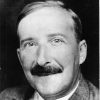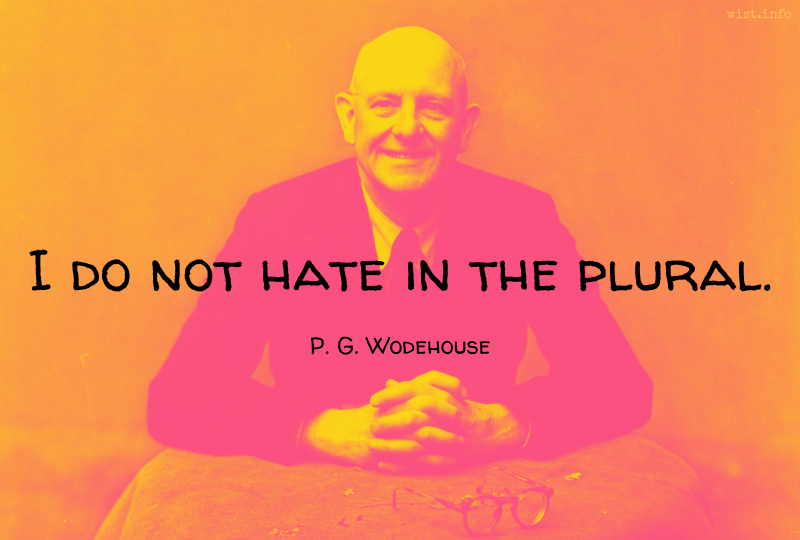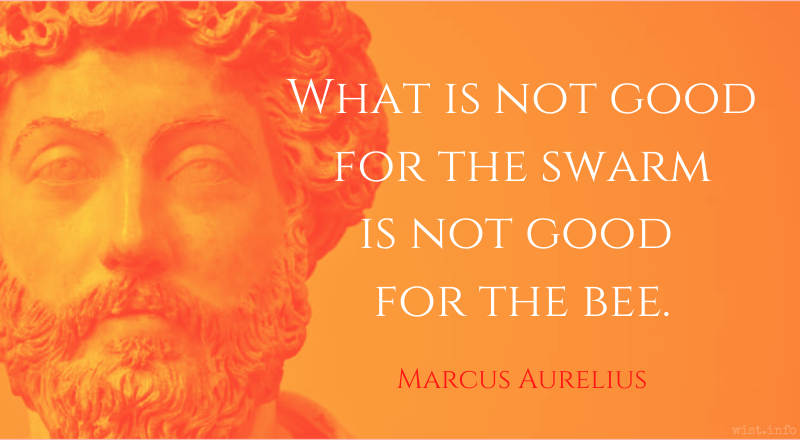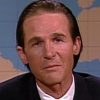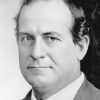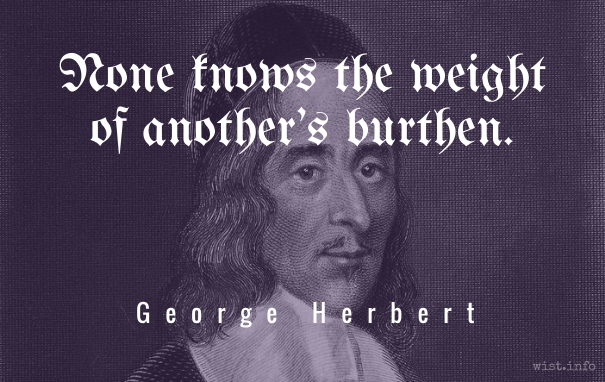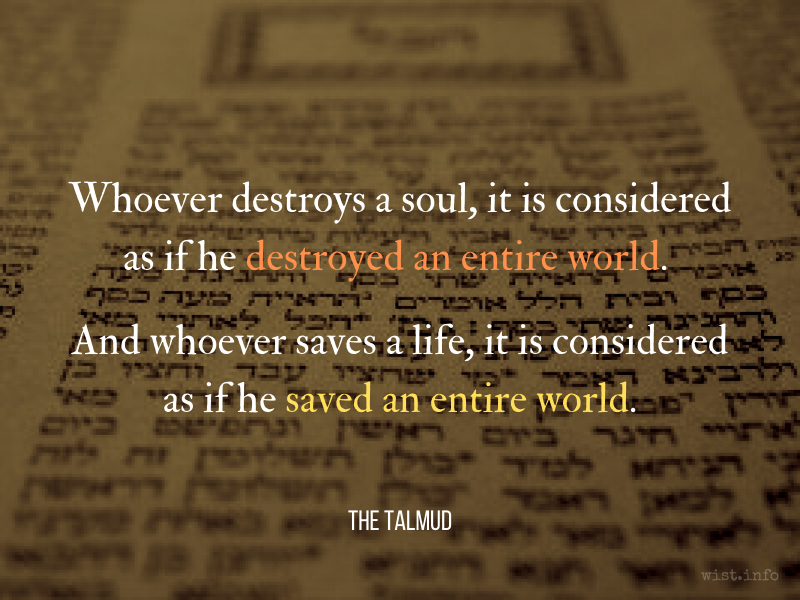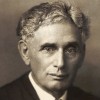Of course one does meet brilliant men, but they are isolated. The fashion nowadays is all for groups and societies of every sort. — It is always a sign of mediocrity in people when they herd together, whether their group loyalty is to Solovyev or to Kant or Marx. The truth is only sought by individuals, and they break with those who do not love it enough.
Boris Pasternak (1890-1960) Russian poet, novelist, and literary translator
Doctor Zhivago [До́ктор Жива́го], Part 1, ch. 1 “The Five-O’Clock Express,” sec. 4 [Nikolai Nikolaievich] (1955) [tr. Hayward & Harari (1958), UK ed.]
(Source)
Alternate translations:
Yes, there are gifted men, but the fashion nowadays is all for groups and societies of every sort. Gregariousness is always the refuge of mediocrities, whether they swear by Solovyiëv or Kant or Marx. Only individuals seek the truth, and they shun those whose sole concern is not the truth.
[tr. Hayward & Harari (1958), US ed.]
You come across talented people. But now various circles and associations are the fashion. Every herd is a refuge for giftlessness, whether it's a faith in Soloviev, or Kant, or Marx. Only the solitary seek the truth, and they break with all those who don't love it sufficiently.
[tr. Pevear & Volokhonsky (2010)]
Quotations about:
individual
Note not all quotations have been tagged, so Search may find additional quotes on this topic.
I was brought up to believe that there is no virtue in conforming meekly to the dominant opinion of the moment. I was encouraged to believe that simple conformity results in stagnation for a society, and that American progress has been largely owing to the opportunity for experimentation, the leeway given initiative, and to a gusto and a freedom for chewing over odd ideas. I was taught that the American’s right to be a free individual, not at the mercy of the state, was hard-won and that its price was eternal vigilance, and that I too would have to be vigilant. I was made to feel that it would be a disgrace to me, as an individual, if I should not value or should give up rights that were dearly bought.
Jane Jacobs (1916-2006) American-Canadian journalist, author, urban theorist, activist
“No Virtue in Meek Conformity” (1952)
(Source)
Foreword to her response to a State Department Loyalty Security Board interrogatory (1952-03-25). Reprinted in Vital Little Plans (2016).
We are going to die, and that makes us the lucky ones. Most people are never going to die because they are never going to be born. The potential people who could have been here in my place but who will in fact never see the light of day outnumber the sand grains of Sahara. Certainly those unborn ghosts include greater poets than Keats, scientists greater than Newton. We know this because the set of possible people allowed by our DNA so massively outnumbers the set of actual people. In the teeth of these stupefying odds it is you and I, in our ordinariness, that are here.
Richard Dawkins (b. 1941) English ethologist, evolutionary biologist, author
Unweaving The Rainbow, ch. 1 “The Anaesthetic of Familiarity” (1998)
(Source)
Dawkins has said this passage will be read at his funeral.
LEAR: I am a man
More sinned against than sinning.William Shakespeare (1564-1616) English dramatist and poet
King Lear, Act 3, sc. 2, l. 62ff (3.2.62-63) (1606)
(Source)
Political loyalty, military obedience are excellent things, but they neither require nor do they justify the commission of patently wicked acts. There comes a point where a man must refuse to answer to his leader if he is also to answer to his conscience.
Hartley Shawcross (1902-2003) English barrister, politician, diplomat
Opening remarks, Nuremberg War Crimes Tribunal (4 Dec 1945)
(Source)
Shawcross was Attorney General of the UK and Chief Prosecutor for the UK at the tribunal
Art is born and takes hold wherever there is a timeless and insatiable longing for the spiritual, for the ideal: that longing which draws people to art. Modern art has taken the wrong turn in abandoning the search for the meaning of existence in order to affirm the value of the individual for his own sake.
Andrei Tarkovsky (1932-1986) Russian film director, screenwriter, film theorist [Андрей Арсеньевич Тарковский]
Sculpting in Time (1986) [tr. Hunter-Blair]
(Source)
No matter what a man or a woman does for a living, it is part of the human mechanism to expect and need recognition of some sort. Beyond the security and the paycheck is the palpable hunger of a person to have an identity of his own.
Rod Serling (1924-1975) American screenwriter, playwright, television producer, narrator
Patterns, Introduction (1957)
(Source)
The love of our neighbor in all its fullness simply means being able to say to him: “What are you going through?” It is a recognition that the sufferer exists, not only as a unit in a collection, or a specimen from the social category labelled “unfortunate,” but as a man, exactly as we are, who was one day stamped with a special mark by affliction.
Simone Weil (1909-1943) French philosopher
“Studies with a View to the Love of God” (Apr 1942), Waiting for God [Awaiting God; Attente De Dieu] (1950)
(Source)
But the thing I must point out is that my despair is of the group itself, the group as it’s assembled. And I’ve never identified with the “local group,” no matter what it identifies itself as. But I do cherish, and love, and am thrilled by individuals. People, one by one as I meet them, I find are wondrous. When you have time to listen and watch them, when you look them in the eyes, you see all the potential of the whole thing, this whole species that has such a wonderful gift that was given by nature. The mind, the ability to objectify and to think abstractly. And we’ve wasted it by everyone wanting a fanny pack and to go to the mall and to be paying 18 percent interest on things that we don’t need, don’t want, don’t work, and can’t give back.
George Carlin (1937-2008) American comedian
Interview by Marc Cooper, The Progressive (Jul 2001)
(Source)
Had the doctrines of Jesus been preached always as pure as they came from his lips, the whole civilized world would now have been Christian. I rejoice that in this blessed country of free inquiry and belief, which has surrendered its creed and conscience to neither kings nor priests, the genuine doctrine of one only God is reviving, and I trust that there is not a young man now living in the United States who will not die an Unitarian.
Thomas Jefferson (1743-1826) American political philosopher, polymath, statesman, US President (1801-09)
Letter (1822-06-26) to Benjamin Waterhouse
(Source)
Cherish what you believe. Don’t job off one single value judgment because it swims upstream against what appears to be a majority. Respect your own logic, your own sense of morality. Death and taxes may be the only absolutes. It’s for you to conjure up the modus operandi of how you live, act, react and hammer out a code of ethics. Certainly listen to arguments; certainly ponder and respect the opinions of your peers. But there’s a point you compromise, and there’s a point all human beings draw a line and say, “Beyond this point it’s not right or just or honest, and beyond this point I don’t move.”
Rod Serling (1924-1975) American screenwriter, playwright, television producer, narrator
Commencement Address, Ithaca College, New York (13 May 1972)
(Source)
And yet a majority vote is worthless as a proof of truths that are at all difficult to discover; for a single man is much more likely to hit upon them than a group of people. I was, then, unable to choose anyone whose opinions struck me as preferable to those of all others, and I found myself as it were forced to become my own guide.
[Et que néanmoins la pluralité des voix n’est pas une preuve qui vaille rien, pour les vérités un peu malaisées à découvrir, à cause qu’il est bien plus vraisemblable qu’un homme seul les ait rencontrées que tout un peuple; je ne pouvois choisir personne dont les opinions me semblassent devoir être préférées à celles des autres, et je me trouvai comme contraint d’entreprendre moi-même de me conduire.]
René Descartes (1596-1650) French philosopher, mathematician
Discourse on Method [Discours de la méthode], Part 2 (1637) [tr. Cottingham, Stoothoff (1985)]
(Source)
(Source (French)). Alternate translations:
Notwithstanding that plurality of voices is a proof of no validity, in those truths which are hard to be discovered; for that it’s much more likely for one man alone to have met with them, then a whole Nation; I could choose no Man whose opinion was to be preferr’d before anothers: And I found my self even constrain’d to undertake the conduct of my self.
[tr. Newcombe ed. (1649)]
Although such be the ground of our opinions, I remarked that a plurality of suffrages is no guarantee of truth where it is at all of difficult discovery, as in such cases it is much more likely that it will be found by one than by many. I could, however, select from the crowd no one whose opinions seemed worthy of preference, and thus I found myself constrained, as it were, to use my own reason in the conduct of my life.
[tr. Veitch (1901)]
Yet in spite of this the voice of the majority does not afford a proof of any value in truths a little difficult to discover, because such truths are much more likely to have been discovered by one man than by a nation. I could not, however, put my finger on a single person whose opinions seemed preferable to those of others, and I found that I was, so to speak, constrained myself to undertake the direction of my procedure.
[tr. Haldane & Ross (1911)]
It always demands a far greater degree of courage for an individual to oppose an organized movement than to let himself be carried along with the stream — individual courage, that is, a variety of courage that is dying out in these times of progressive organization and mechanization. During the war practically the only courage I ran across was mass courage, the courage that comes of being one of a herd, and anyone who examines this phenomenon more closely will find it to be compounded of some very strange elements: a great deal of vanity, a great deal of fear — yes, fear of staying behind, fear of being sneered at fear of independent action, and fear, above all, of taking up a stand against the mass enthusiasm of one’s fellows.
Cultures are cunning tailors. They cut garments from convenience and then work hard to reshape individuals to fit them.
Charles King (b. 1967) American historian, political scientist, academic, author
Gods of the Upper Air (2019)
(Source)
Society is like the air, necessary to breathe but insufficient to live on.
George Santayana (1863-1952) Spanish-American poet and philosopher [Jorge Agustín Nicolás Ruíz de Santayana y Borrás]
The Life of Reason, Vol. 2: Reason in Society, ch. 8 “Ideal Society” (1905)
(Source)
I do not hate in the plural.
P. G. Wodehouse (1881-1975) Anglo-American humorist, playwright and lyricist [Pelham Grenville Wodehouse]
(Attributed)
When asked, as a former WWII internee, whether he hate the Germans (or the Nazis).
George Orwell, writing in 1945 a defense of Wodehouse's actions while an internee, quoted him in a more complex version of this:
I never was interested in politics. I’m quite unable to work up any kind of belligerent feeling. Just as I’m about to feel belligerent about some country I meet a decent sort of chap. We go out together and lose any fighting thoughts or feelings.
And what is an authentic lunatic? He is a man who has preferred to become what is socially understood as mad rather than forfeit a certain superior idea of human honor. In its asylums, society has managed to strangle all those it has wished to rid itself of or defend itself from, because they refused to make themselves accomplices to various flagrant dishonesties. For a lunatic is also a man whom society has not wished to listen to, and whom it is determined to prevent from uttering unbearable truths.
Antonin Artaud (1896-1948) French playwright, actor, director
Van Gogh, the Man Suicided by Society [Le Suicidé de la Société] (1947) [tr. Watson]
(Source)
Alternate translation:
And what is an authentic madman? It is a man who preferred to become mad, in the socially accepted sense of the word, rather than forfeit a certain superior idea of human honor. So society has strangled in its asylums all those it wanted to get rid of or protect itself from, because they refused to become its accomplices in certain great nastinesses. For a madman is also a man whom society did not want to hear and whom it wanted to prevent from uttering certain intolerable truths.
In a courtroom there is no system on trial, no history or historical trend, no ism, anti-Semitism for instance, but a person, and if the defendant happens to be a functionary, he stands accused precisely because even a functionary is still a human being, and it is in this capacity that he stands trial.
Hannah Arendt (1906-1975) German-American philosopher, political theorist
“Personal Responsibility Under Dictatorship” (1964)
(Source)
There is no such thing as collective guilt or collective innocence; guilt and innocence make sense only if applied to individuals.
Hannah Arendt (1906-1975) German-American philosopher, political theorist
“Personal Responsibility Under Dictatorship” (1964)
(Source)
But although foreign and internal threats of Fascism must be taken seriously, there is no greater mistake and no graver danger than not to see that in our own society we are faced with the same phenomenon that is fertile soil for the rise of Fascism anywhere: the insignificance and powerlessness of the individual.
Erich Fromm (1900-1980) American psychoanalyst and social philosopher
Escape from Freedom, ch. 7, sec. 1 (1941)
(Source)
Society in its full sense […] is never an entity separable from the individuals who compose it. No individual can arrive even at the threshold of his potentialities without a culture in which he participates. Conversely, no civilization has in it any element which in the last analysis is not the contribution of an individual.
Ruth Benedict (1887-1947) American anthropologist
Patterns of Culture, ch. 8 “The Individual and Culture” (1934)
(Source)
Sometimes quoted as "The community is never an entity ...."
Any power must be the enemy of mankind which enslaves the individual by terror and force, whether it arises under a Fascist or Communist flag. All that is valuable in human society depends on the opportunity for development accorded to the individual.
Albert Einstein (1879-1955) German-American physicist
Press statement, England (15 Sep 1933)
(Source)
What is not good for the swarm is not good for the bee.
[Τὸ τῷ σμήνει μὴ συμφέρον οὐδὲ τῇ μελίσσῃ συμφέρει.]
Marcus Aurelius (AD 121-180) Roman emperor (161-180), Stoic philosopher
Meditations, Book 6, #54 (2nd C AD)
Original here. Alt. trans.:
- "That which is not good for the beehive, cannot be good for the bee." [tr. Casaubon (1634); numbered 49]
- "What does not benefit the hive is no benefit to the bee." [tr. Farquharson (1944)]
- "That which is not for the interest of the whole swarm is not for the interest of the bee." [tr. Collier]
- "What injures the hive injures the bee." [tr. Hays (2002)]
- "What is not good for the hive is not good for the bee."
It is our firm belief that if souls were visible to the eye we should clearly see that strange thing whereby every single member of the human species corresponds to some species of the animal world. And we would easily be able to recognize that truth barely apprehended by the philosopher, which is that, from the oyster to the eagle, from the pig to the tiger, all animals are to be found in mankind, and each one of them is to be found in some man. Sometimes even several at a time.
[Dans notre conviction, si les âmes étaient visibles aux yeux, on verrait distinctement cette chose étrange que chacun des individus de l’espèce humaine correspond à quelqu’une des espèces de la création animale ; et l’on pourrait reconnaître aisément cette vérité à peine entrevue par le penseur, que, depuis l’huître jusqu’à l’aigle, depuis le porc jusqu’au tigre, tous les animaux sont dans l’homme et que chacun d’eux est dans un homme. Quelquefois même plusieurs d’entre eux à la fois.]
Victor Hugo (1802-1885) French writer
Les Misérables, Part 1 “Fantine,” Book 5 “The Descent,” ch. 5 (1.5.5) (1862) [tr. Donougher (2013)]
(Source)
Commentary while introducing Javert (whose "animal" is the one wolf born in each litter which is killed by the mother so that he does not kill the others).
(Source (French)). Alternate translations:
It is our conviction that if souls were visible to the eyes, we should be able to see distinctly that strange thing, that each one individual of the human race corresponds to some one of the species of the animal creation; and we could easily recognize this truth, hardly perceived by the thinker, that from the oyster to the eagle, from the pig to the tiger, all animals exist in man, and that in each one of them is in a man. Sometimes even several of them at a time.
[tr. Wilbour (1862)]
In our conviction, if souls were visible we should distinctly see the strange fact that every individual of the human species corresponds to some one of the species of animal creation; and we might easily recognize the truth, which has as yet scarce occurred to the thinker, that, from the oyster to the eagle, from the hog to the tiger, all animals are in man, and that each of them is in a man; at times, several of them at once.
[tr. Wraxall (1862)]
It is our conviction that if souls were visible to the eyes, we should be able to see distinctly that strange thing that each one individual of the human race corresponds to some one of the species of the animal creation; and we could easily recognize this truth, hardly perceived by the thinker, that from the oyster to the eagle, from the pig to the tiger, all animals exist in man, and that each one of them is in a man. Sometimes even several of them at a time.
[tr. Hapgood (1887)]
It is our belief that if the soul were visible to the eye every member of the human species would be seen to correspond to some species of the animal world and a truth scarcely perceived by thinkers would be readily confirmed, namely, that from the oyster to the eagle, from the swine to the tiger, all animals are to be found in men and each of them exists in some man, sometimes several at a time.
[tr. Denny (1976)]
It is our belief that if the soul were visible to the eye, every member of the human species would be seen to correspond to some species of the animal world, and a truth scarcely perceived by thinkers would be readily confirmed, namely, that from the oyster to the eagle, from the swine to the tiger, all animals are to be found in men and each of them exists in some man, sometimes several at a time.
[tr. Wilbour/Fahnestock/MacAfee (1987)]
During the greater part of the nineteenth century the significance of the opposition between the two principles of individual rights and social functions was masked by the doctrine of the inevitable harmony between private interests and public good. Competition, it was argued, was an effective substitute for honesty. Today … few now would profess adherence to the compound of economic optimism and moral bankruptcy which led a nineteenth century economist to say: “Greed is held in check by greed, and the desire for gain sets limits to itself.”
R. H. Tawney (1880-1962) English writer, economist, historian, social critic [Richard Henry Tawney]
The Acquisitive Century, ch. 3 “The Acquisitive Society” (1920)
(Source)
There are a billion people in China. It’s not easy to be an individual in a crowd of more than a billion people. Think of it. More than a BILLION people. That means even if you’re a one-in-a-million type of guy, there are still a thousand guys exactly like you.
The humblest citizen of all the land, when clad in the armor of a righteous cause, is stronger than all the hosts of Error.
William Jennings Bryan (1860–1925) American lawyer, statesman, politician, orator
Speech, National Democratic Convention, Chicago (Jul 1896)
(Source)
None knowes the weight of anothers burthen.
George Herbert (1593-1633) Welsh priest, orator, poet.
Jacula Prudentum, or Outlandish Proverbs, Sentences, &c. (compiler), # 880 (1651 ed.)
(Source)
Whoever destroys a soul, it is considered as if he destroyed an entire world. And whoever saves a life, it is considered as if he saved an entire world.
The Talmud (AD 200-500) Collection of Jewish rabbinical writings
Mishnah Sanhedrin 4:9; Yerushalmi Talmud, Tractate Sanhedrin 37a
(Source)
Alt. trans.: "Whoever destroys a single life is as guilty as though he had destroyed the entire world; and whoever rescues a single life earns as much merit as though he had rescued the entire world."
Individualism in one sense the only possible ideal; for whatever social order may be most valuable can be valuable only for its effect on conscious individuals.
George Santayana (1863-1952) Spanish-American poet and philosopher [Jorge Agustín Nicolás Ruíz de Santayana y Borrás]
The Life of Reason or The Phases of Human Progress, Vol. 2 “Reason in Society,” ch. 2 “The Family” (1905-06)
(Source)
The sole end for which mankind are warranted, individually or collectively, in interfering with the liberty of action of any of their number, is self-protection. That the only purpose for which power can be rightfully exercised over any member of a civilised community, against his will, is to prevent harm to others. His own good, either physical or moral, is not a sufficient warrant. He cannot rightfully be compelled to do or forbear because it will be better for him to do so, because it will make him happier, because, in the opinions of others, to do so would be wise, or even right. These are good reasons for remonstrating with him, or reasoning with him, or persuading him, or entreating him, but not for compelling him, or visiting him with any evil in case he do otherwise. To justify that, the conduct from which it is desired to deter him must be calculated to produce evil to some one else. The only part of the conduct of any one, for which he is amenable to society, is that which concerns others. In the part which merely concerns himself, his independence is, of right, absolute. Over himself, over his own body and mind, the individual is sovereign.
Where after all do universal human rights begin? In small places, closes to home — so close and so small that they cannot be seen on any map of the world. Yet they are the world of the individual person: The neighborhood he lives in; the school or college he attends; the factory, farm or office where he works. Such are the places where every man, woman, and child seeks equal justice, equal opportunity, equal dignity without discrimination. Unless these rights have meaning there, they have little meaning anywhere. Without concerted citizen action to uphold them close to home, we shall look in vain for progress in the larger world.
At the heart of that Western freedom and democracy is the belief that the individual man, the child of God, is the touchstone of value, and all society, groups, the state, exist for his benefit. Therefore the enlargement of liberty for individual human beings must be the supreme goal and the abiding practice of any Western society.
Robert Francis Kennedy (1925-1968) American politician
“Day of Affirmation,” address, University of Capetown, South Africa (6 Jun 1966)
(Source)
What are the American ideals? They are the development of the individual for his own and the common good; the development of the individual through liberty, and the attainment of the common good through democracy and social justice.
Louis Brandeis (1856-1941) American lawyer, activist, Supreme Court Justice (1916-39)
“True Americanism,” speech, Faneuil Hall, Boston (1915-07-05)
(Source)
The State exists for man, not man for the State.
Albert Einstein (1879-1955) German-American physicist
“The Road to Peace,” New York Times (22 Nov 1931)
(Source)
In The World As I See It [tr. Harris (1934)], given as "The State is made for man, not man for the State."
The individual is not accountable to society for his actions in so far as these concern the interests of no person but himself. Advice, instruction, persuasion, and avoidance by other people, if thought necessary by them for their own good, are the only measures by which society can justifiably express its dislike or disapprobation of his conduct.
John Stuart Mill (1806-1873) English philosopher and economist
On Liberty, ch. 5 “Applications” (1859)
(Source)
On the other hand, the cheapest form of pride is national pride; for the man affected therewith betrays a want of individual qualities of which he might be proud, since he would not otherwise resort to that which he shares with so many millions. The man who possesses outstanding personal qualities will rather see most clearly the faults of his own nation, for he has them constantly before his eyes. But every miserable fool, who has nothing in the world whereof he could be proud, resorts finally to being proud of the very nation to which he belongs. In this he finds compensation and is now ready and thankful to defend, “tooth and nail,” all the faults and follies peculiar to it.
[Die wohlfeilste Art des Stolzes hingegen ist der Nationalstolz. Denn er verrät in dem damit Behafteten den Mangel an individuellen Eigenschaften, auf die er stolz sein könnte, indem er sonst nicht zu dem greifen würde, was er mit so vielen Millionen teilt. Wer bedeutende persönliche Vorzüge besitzt, wird vielmehr die Fehler seiner eigenen Nation, da er sie beständig vor Augen hat, am deutlichsten erkennen. Aber jeder erbärmliche Tropf, der nichts in der Welt hat, darauf er stolz sein könnte, ergreift das letzte Mittel, auf die Nation, der er gerade angehört, stolz zu sein. Hieran erholt er sich und ist nun dankbarlich bereit, alle Fehler und Torheiten, die ihr eigen sind, mit Händen und Füßen zu verteidigen.]
Arthur Schopenhauer (1788-1860) German philosopher
Parerga and Paralipomena, Vol. 1, “Aphorisms on the Wisdom of Life [Aphorismen zur Lebensweisheit],” ch. 4 “From What One Imagines [Von dem, was einer vorstellt]” (1851) [tr. Payne (1974)]
(Source)
(Source (German)). Alternate translation:
The cheapest sort of pride is national pride; for if a man is proud of his own nation, it argues that he has no qualities of his own of which he can be proud; otherwise he would not have recourse to those which he shares with so many millions of his fellowmen. The man who is endowed with important personal qualities will be only too ready to see clearly in what respects his own nation falls short, since their failings will be constantly before his eyes. But every miserable fool who has nothing at all of which he can be proud adopts, as a last resource, pride in the nation to which he belongs; he is ready and glad to defend all its faults and follies tooth and nail, thus reimbursing himself for his own inferiority.
[tr. Saunders (1890)]
The cheapest form of pride however is national pride. For it betrays in the one thus afflicted the lack of individual qualities of which he could be proud, while he would not otherwise reach for what he shares with so many millions. He who possesses significant personal merits will rather recognise the defects of his own nation, as he has them constantly before his eyes, most clearly. But that poor beggar who has nothing in the world of which he can be proud, latches onto the last means of being proud, the nation to which he belongs to. Thus he recovers and is now in gratitude ready to defend with hands and feet all errors and follies which are its own.
[Source]
We must guard against being too individualistic and elitist in our understanding of spirituality. Some Christians talk endlessly about the importance of one’s interior life and how to develop it more fully, forgetting that Christ is born to bring hope and joy also to whole communities of people — the exiles, the deported, the tortured, the silenced.
William Sloane Coffin, Jr. (1924-2006) American minister, social activist
Credo, “Faith, Hope, and Love” (2004)
(Source)
The only part of the conduct of any one, for which he is amenable to society, is that which concerns others. In the part which merely concerns himself, his independence, is, of right, absolute. Over himself, over his own body and mind, the individual is sovereign.
John Stuart Mill (1806-1873) English philosopher and economist
On Liberty, ch. 1 “Introductory” (1859)
(Source)
There are two great rules in life, the one general and the other particular. The first is that every one can in the end get what he wants if he only tries. This is the general rule. The particular rule is that every individual is more or less of an exception to the general rule.
Samuel Butler (1835-1902) English novelist, satirist, scholar
The Note-Books of Samuel Butler (1912)
(Source)
No snowflake in an avalanche ever feels responsible.
[Żaden płatek śniegu nie czuje się odpowiedzialny za lawinę.]
Stanislaw Lec (1909-1966) Polish aphorist, poet, satirist
More Unkempt Thoughts [Myśli nieuczesane nowe] (1964) [tr. Gałązka (1969)]
(Source)
Alternate translation: "Each snowflake in an avalanche pleads not guilty."
More discussion of this quotation here: No Snowflake in an Avalanche Ever Feels Responsible – Quote Investigator.
The object in life is not to be on the side of the majority, but to escape finding oneself in the ranks of the insane.
Marcus Aurelius (AD 121-180) Roman emperor (161-180), Stoic philosopher
(Spurious)
(Source)
The earliest identifiable citation appears as an epigraph to Leo Tolstoy, Bethink Yourselves!, ch. 8 (1904), in Recollections & Essays [tr. Aylmer Maud (1937)]. A cleaner copy can be found at the Nonresistance.org site. The classic (and presumably abridged) version of Bethink Yourselves!, as translated by Chertkov (1904), does not include any of the copious epigraphs, including this one.
Regardless, this phrase is not clearly found in Marcus Aurelius' Meditations, though other parts of the lengthy epigraph appear to be. If ordered by position, this would presumably fall somewhere from 10.6 to 10.8 (i.e., the preceding and following sentences are more clearly identifiable), but the language of this sentence does not seem to line up.












